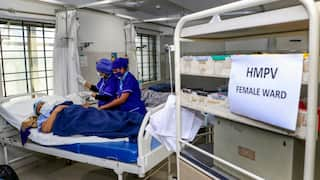Survival of patients with anal cancer depends on socioeconomic status

Washington D.C. [U.S.A.], Mar. 12 (ANI): Patients with anal cancer, living in low median household income areas, have an increased risk of early death as compared to those in high-income areas.
Owing to Squamous cell carcinoma of the anus (SCCA), there have been 8,200 new cancer cases and more than 1,000 cancer-related deaths in the United States annually. It has been significantly rising, possibly because of the changing trends in sexual behaviour combined with known risk factors, such as human papilloma virus and tobacco smoking.
Advances in SCCA treatment have boosted survival and cure rates, but the benefits are shared unevenly among patients of disparate socioeconomic status.
From the lowest to the higher income levels, the risk of dying was 32%, 31%, 19%, and 16% higher for patients when compared with patients in the very highest quintile of median household income. When considering only deaths due to cancer, increased risks ranged from 34% down to 22% for the lowest to higher incomes.
Other factors such as old age, male gender, unmarried status, earlier year of diagnosis, higher grade, and later stage were also associated with worse cancer-specific survival.
Researcher Dr Daniel Becker said, "Our findings reveal that US residents who have anal cancer and live in areas of poverty have worse survival than those who live in more affluent areas, even after accounting for differences in age, stage, and race. Anal cancer is often a curable disease, and, in light of the tremendous resources available in US healthcare, we do not believe that poverty should determine cancer outcomes. The ultimate goal is to make sure that all patients receive high quality care, regardless of their wealth or zip code."
Dr Becker suggested that in order to provide high-quality healthcare for all, it is important for us to get a better understanding of the factors limiting the successful treatment of anal cancer. He added, "Additional resources are urgently needed to study and address disparities in anal cancer care and outcomes."
The findings from the study are published in the journal, Cancer. (ANI)
This story has not been edited. It has been published as provided by ANI
Trending News
Top Headlines






























